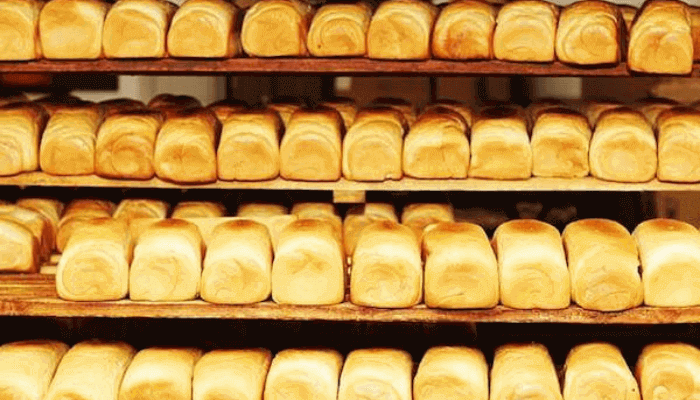Nigeria is expereicning galloping inflation and data suggest bread prices are a major factor.
Available data from the December 2022 consumer price index (CPI) report from the National Bureau of Statistics (NBS) shows that increased bread costs are a contributing factor to food inflation in Nigeria.
According to the CPI and inflation report, the food inflation rate in December 2022 was 23.75% on a year-on-year basis; which was 6.38% higher compared to the rate recorded in December 2021 (17.37%).
Also, on a month-on-month basis, the food inflation rate in December was 1.89%, this was 0.49% higher compared to the rate recorded in November 2022 (1.40%).
The NBS identified inflation as being caused by the rise in prices of bread and other food items like potatoes, yams, fish, oil, and cereals.
- “The rise in the food inflation was caused by increases in prices of Bread and cereals, Oil and fat, Potatoes, Yam and other tubers, Fish, Food Product etc.”
Rising costs of major ingredients
Mrs. Okafor, a caterer told Nairametrics that the cost of flour, sugar, and milk for the production of bread has been increasing since 2022.
- The increase is mainly due to the increase in wheat importation costs as a result of the Russia-Ukraine war as well as Nigeria’s foreign exchange challenges.
- With Nigeria being the second largest wheat importer in the world, it makes it hard for bakers and even big bakeries to effectively run their businesses without increasing the cost of bread, which is a staple food for Nigerian families.
- According to her, customers have been complaining about the rise in the cost of bread, especially the family loaf which costs N1000 or N900 per loaf.
Mrs. Okafor, who is based in Lagos, gave Nairametrics a breakdown of the average costs of large quantities of flour, sugar, and milk, which are major ingredients needed for bread production.
- 50kg bag of flour – N30,000 to N32,000
- 50kg bag of milk – N32,000 to N34,000
- 50kg bag of sugar – N34,000 to N36,000
Production costs at FQ Loaf typify the burden on bakeries
Ada Abel, General Manager at Abuja-based FQ Loaf Bakery, told Nairametrics that aside from the rising cost of ingredients, the business carries a lot of other costs.
According to her, the bakery has multiple products but the Jumbo loaf and the Family loaf are more popular among customers.
The average unit cost of a Jumbo loaf is N700 and there are over 40 in a batch which has to be produced mostly using a diesel generator. Meanwhile, the average unit cost of a Family loaf is N650 and there are over 70 per batch.
- To cover risks, the bakery adds the cost of only a loaf of bread to each batch, which most times is less than the risks later encountered.
- That and other risks like loaves that may go bad in passing through the value chain are borne entirely by the business.
- The bakery buys diesel at N880 per liter and sometimes the full production process which could take over an hour has to be run using the diesel generator.
According to Ms. Abel, the loaves of bread pass through three layers of sales – bakery to distributors, distributors to table toppers (retailers), and table toppers to end consumers.
As the loaves travel to each party, money is added before the bread gets to the final consumer, so they can all make a profit.
- She told Nairametrics of other costs that do not factor into the price of bread. She mentioned over 15 levies by the local government council, public health cadet charges, and food handling tests which cost the bakery N5000 per staff and have to be done every two years.
- The Public Health Act inspection has to be done every three months and costs N3,500 per staff as well as an N30,000 certificate.
- She also highlighted the inspection of business premises by officials of the Abuja Municipal Area Council (AMAC), as well as levy increases by the National Agency for Food and Drug Administration and Control (NAFDAC).
For the record: The NBS inflation report earlier cited says that in December 2022, food inflation on a year-on-year basis was highest in Kwara (27.90%), Imo (26.94%), and Ebonyi (26.28%), while Sokoto (20.90%), Taraba (21.59%) and Cross River (21.71%) recorded the slowest rise in year-on-year food inflation.
- However, on a month-on-month basis, December 2022 food inflation was highest in Sokoto (3.38%), Oyo (3.10%), and Kaduna (2.97%), while Nasarawa (0.06%), Osun (0.70%) and Kogi (0.76%) recorded the slowest rise on month-on-month inflation.











